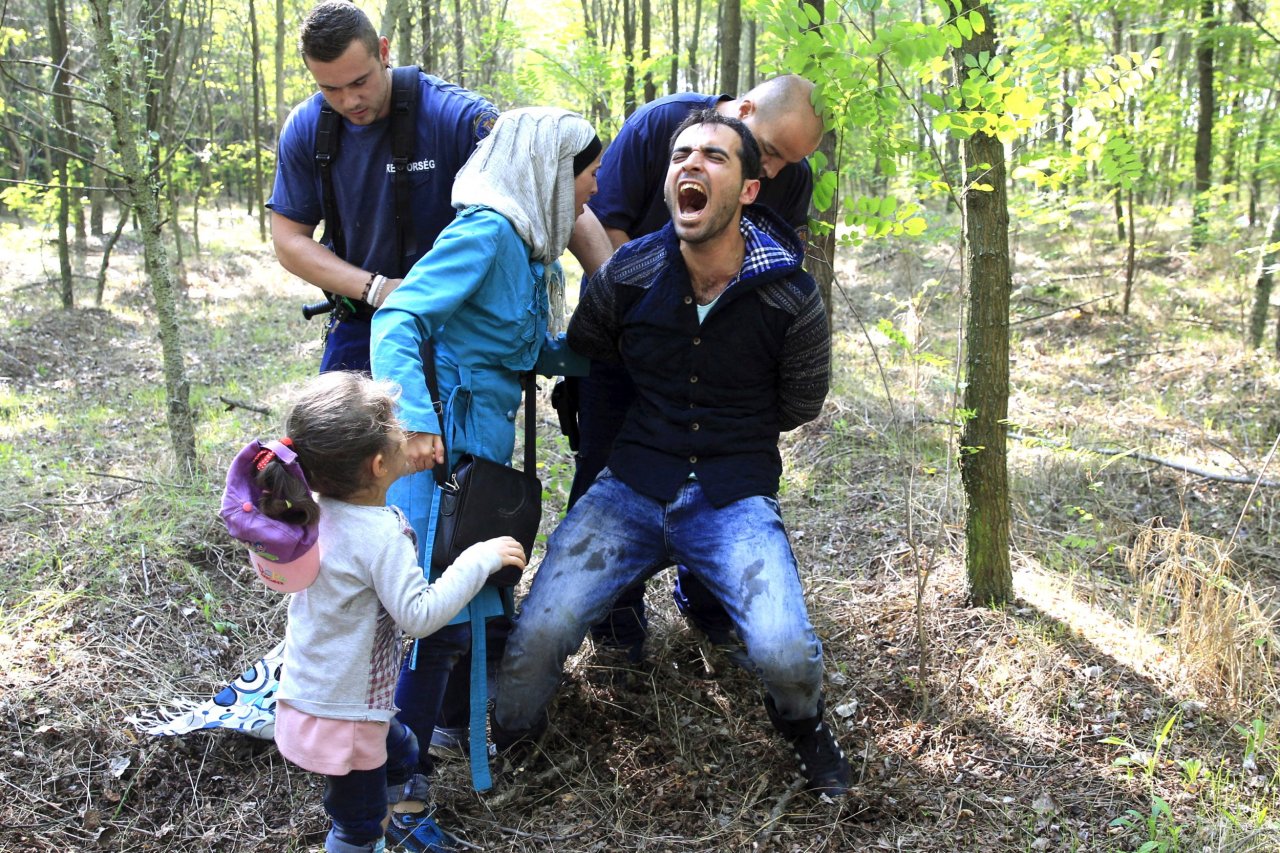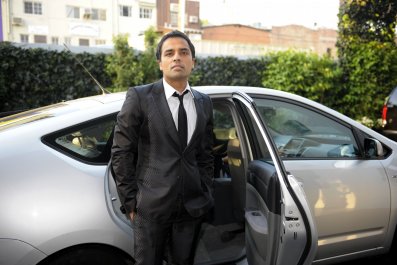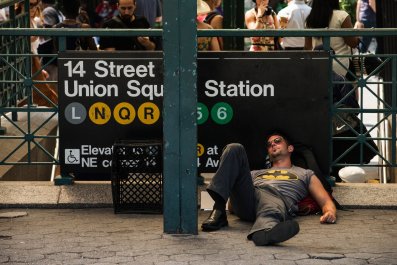Viktor Orbán, Hungary's prime minister, is not taking any chances. On state television, advertisements warn of a growing migrant menace. Billboards across the country proclaim that Brussels plans to relocate a city's worth of potential terrorists to Hungary. And ministers and lawmakers from the ruling right-wing Fidesz party are calling on supporters to go to the polls on October 2 to make sure Orbán gets the answer he wants to the following referendum question: "Do you want the European Union to be able to order the mandatory settlement of non-Hungarian citizens in Hungary without Parliament's consent?"
The latest opinion polls suggest at least two-thirds of the electorate will vote "no." That probable outcome will be in part because Hungary, like its neighbors in the former Soviet bloc, has almost no experience with immigration. The country remains overwhelmingly white and Christian. But people will also be voting "no" in reaction to recent events. A year ago, Hungary was the epicenter of Europe's refugee crisis. Keleti train station in Budapest became a giant open-air refugee camp as thousands of asylum seekers poured into the country across the southern border and stayed in the capital before eventually heading west to Germany. In response, Orbán's government built fences on its southern borders with Serbia and Croatia. "If we let the Muslims onto the continent to compete with us, they will outnumber us," Orbán said last year. "It's mathematics. And we don't like it." Many Hungarians agreed with him.
Now, as he rallies the country for a "no" vote in October, Orbán is also pushing back against another perceived threat to Hungary's identity—the European Union. Under the terms of the European Council's Emergency Response Mechanism, adopted last September, member states agreed to relocate 160,000 people under a quota system (those asylum seekers are currently living mainly in Greece and Italy). Hungary was penciled in to take 1,294 refugees, but, along with Slovakia, the Czech Republic and Romania, it was hostile to the quota system from the start and voted against it. So far, Hungary has accepted no refugees under the plan. Instead, it has joined with Slovakia in challenging the plan in the European Court of Justice.
Hungary may be resisting the decision-makers in Brussels, but, for now, nobody is talking about a Huxit—a Hungarian exit from the EU. The referendum is not legally binding, nationally or internationally. But neither can the EU stop it or sanction Hungary. "There will be a lot of cluck-clucking in Brussels but nothing serious," says György Schöpflin, a member of the European Parliament for Fidesz. "This is about strengthening the government's position when it is negotiating with Brussels."
With the EU weakened by Brexit—Britain's upcoming exit from the union—many in central Europe believe now is the time to roll back the liberal immigration policies favored in Western Europe. As pressure builds, old political fault lines are re-emerging. The Visegrád Four—Hungary, Poland, the Czech Republic and Slovakia—often supported by the Baltic nations, are increasingly confident and vocal. Orbán and his Polish allies are open about their aim: to destroy what they see as a liberal consensus among Western European nations on the benefits of immigration. "We are at a historical cultural moment," said Orbán in early September, appearing with Jaroslaw Kaczynski, the leader of Poland's ruling party. "There is the possibility of a cultural counter-revolution right now."
In Hungary, Orbán's opponents say he's stirring up dangerous nationalist feeling by holding the referendum. "There will be no beneficial results from this," says Viktor Szigetvári, co-chair of Together, a progressive liberal opposition party. "The government is not interested in finding solutions. The referendum will feed anger and intolerance here. It will further undermine the cohesion of our society."
Orbán's allies disagree. "Hungary's referendum will reinforce the position of other states that have grave doubts about the quota, not just the Visegrád countries," says Schöpflin. "A lot of people are uneasy about compulsory quotas, and the mood has darkened after the attacks in Paris, Brussels and the events in Cologne. People are saying, 'Yes, we are generous and open, but maybe there is something in the argument that some people, including the second generation of migrants, are committed to destroying our way of life.'"
Critics in Europe and across the globe have slammed Orbán's policies. In September, Zeid Ra'ad al-Hussein, the U.N. high commissioner for human rights, lumped Orbán in with the Islamic State militant group (ISIS) and right-wing populists such as Donald Trump and Marine Le Pen, the leader of the French National Front, accusing them of peddling "half-truths" and "oversimplifications." Such leaders, he said, "seek in varying degrees to recover a past, halcyon and so pure in form, where sunlit fields are settled by peoples united by ethnicity or religion—living peacefully in isolation, pilots of their fate, free of crime, foreign influence and war. A past that most certainly, in reality, did not exist anywhere, ever."
Al-Hussein's remarks angered Hungarian officials. Péter Szijjártó, the Hungarian foreign minister, said it was "unacceptable and outrageous that an unelected U.N. bureaucrat should compare a democratically elected European politician to the ideology of the Islamic State."
As tensions build between Hungary's right-wing administration and more liberal governments and institutions outside the country's borders, the reality on the ground has changed. Each day, only a handful of refugees try to enter Hungary before being turned back; in the summer of 2015, thousands crossed the border every day. Orbán has promised to reinforce the frontier fences he ordered built last year—just in case another influx of refugees reaches the country's borders. "Technical planning is underway to erect a more massive defense system next to the existing line of defense, which was built quickly," he said on August 26. "Then, if it does not work with nice words, we will have to stop them with force, and we will do so." EU leaders are unlikely to ever receive such threats from Orbán—but on October 2, they'll likely get another strong indication that, like the British, Hungarian voters are becoming increasingly hostile to Brussels telling them what to do.
















